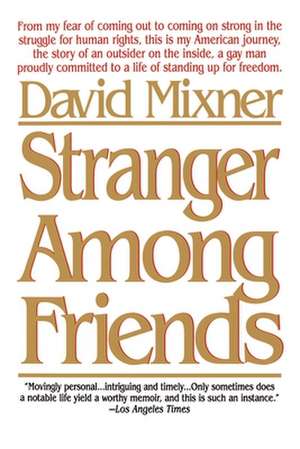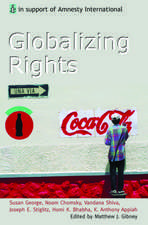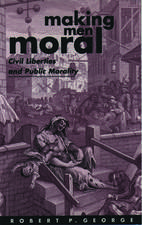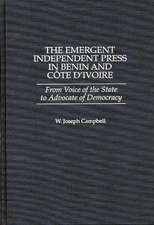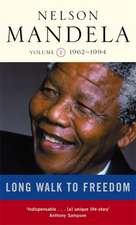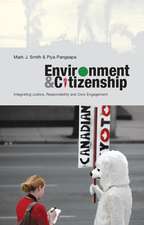Stranger Among Friends
Autor David Mixneren Limba Engleză Paperback – 31 mai 1997
"President Clinton and I were born three days apart. We had both dreamed of serving our country. There was one difference: He could pursue his dream, while I felt I could not. The President was born straight and I was born gay."
In this stirring personal history, one of America's most influential gay rights advocates recounts his extraordinary career as a policy maker and adviser to the major political leaders of our time, and his own often anguishing, ultimately triumphant life as a gay man. A longtime personal friend of Bill Clinton, in Stranger Among Friends David Mixner offers an insider's look at the power struggles that occur every day in our nation's capital and candid insights on the Clinton administration's successes and failures. Spanning three decades of human rights activism--from the behind-the-scenes negotiations to the painful betrayals to the hard-won victories--his forthright story unflinchingly explores what it means to be an outsider on the inside, and sends a message of hope to all who have ever stood up for what they believe.
Preț: 122.14 lei
Nou
Puncte Express: 183
Preț estimativ în valută:
23.37€ • 24.40$ • 19.34£
23.37€ • 24.40$ • 19.34£
Carte disponibilă
Livrare economică 14-28 martie
Preluare comenzi: 021 569.72.76
Specificații
ISBN-13: 9780553375541
ISBN-10: 0553375547
Pagini: 384
Dimensiuni: 150 x 230 x 25 mm
Greutate: 0.57 kg
Editura: Bantam Books
ISBN-10: 0553375547
Pagini: 384
Dimensiuni: 150 x 230 x 25 mm
Greutate: 0.57 kg
Editura: Bantam Books
Extras
The sense of triumph and the exhilarating bonding that comes of shared commitment to a deeply felt cause--nothing takes the place of the human need for intimacy, for love. I saw those around me have the gift of that closeness. Sam was dating and Hawk was in a relationship. This was the year I grew bolder in my hunger to fight my own deep loneliness.
During the summer before the Moratorium I had realized I could no longer deny my homosexuality--the self-imposed celibacy of the last couple of years was taking too great a toll. Increasingly, I found myself having to come to terms with powerful sexual urges. I would do my best to contain them, live in denial, then abruptly seek an outlet when I couldn't stand it any longer. Rather than planning how to meet my needs safely, without any risk of disclosure, I would wait until the frustrations had reached fever pitch and then carelessly seek anonymous sex. I would go to dark parks or walk around gay areas of Washington hoping to meet someone who would give me release. I'd make up a name and background in the hope this would conceal my real identity. Eventually, I found the courage to go out to bars. I learned which ones were straight and which were "mixed" and which were gay, and I sought out dark, out-of-the-way retreats where it seemed less likely I'd encounter anyone familiar. I discovered that as long as I was able to express myself sexually, my anger and tension eased. Even though my human contact was always in a stranger's arms, it was at least some form of intimacy. I needed and wanted that contact.
Shirley MacLaine had also helped me to be more adventurous. She was having an affair with national news reporter Sander Vanocur, and when I was in New York the three of us often had dinner in her apartment and amid a lot of laughter swapped the latest political gossip. Shirley was committed to sexual liberation. She was blunt about her distaste for what she regarded as puritan morality. She did not know I was gay and I longed to tell her. I knew in my heart that she would receive it with love, but I still couldn't bring myself to utter that word--not to Shirley, who increasingly cared about me, or to anyone else.
She also introduced me to her good friends Phyllis and Eb Kronhausen, who were noted advocates of sexual freedom and liberation. They were no more aware of my gayness than she was, but they were eager to open up a whole world of sexual freedom to me. When I was on a trip to California, Shirley had them take me to Sandstone, in the Santa Monica mountains, a swinger retreat where heterosexual nudity and sexuality were expressed openly and with abandon. I kept my clothes on as I explored this sexual playground, walking about in disbelief at what I was seeing. My puritanical upbringing warred with my yearnings--it intimidated me to see conventional boundaries ignored and with such apparent joy, yet I resented not being able to have the same freedom for myself. But most of all I was overwhelmed by the way sex for the revelers at Sandstone was truly a form of connectedness, communication, expression--even a work of art--and never something to be practiced in shame.
I was enriched that day. I learned for the first time that sex could be an occasion of celebration. I began at last to examine my own sexuality with less fear.
But that did not mean the world would accept me for who and what I was. I knew that my political career and my family would be destroyed if my gayness became known. So I went on frequenting obscure little joints and assuming a variety of false identities. A small bar near Thomas Circle became a favorite. It was a classic setting for the time: a narrow entranceway, a dim, windowless room with a long wood bar and shabby booths along the wall, the smell of beer permeating the air. You could sit there quietly nursing a glass and then another one, getting just drunk enough to find someone with whom to have sex but hopefully not so drunk that you could not remember having it. The jukebox played favorite gay melodies like "Over the Rainbow" and "I've Gotta Be Me." Everything about it--the bar, the music, our conduct--reflected the closeted reality of homosexuality in the 1960s.
It was here that I met "Frank." Earlier in the evening I had smoked a joint to garner the courage to go there one more time, afraid as always I might run into someone who knew me. I sat at my usual place at the darkest end of the bar, sipping my Miller's and feeling very down. Then I sensed a presence next to me. At my left was the handsomest man I had ever seen. He had jet-black hair, brilliant green eyes, and a smile that seduced me instantly. He was wearing tight blue jeans and a light blue work shirt, and gave off an air of confidence you almost never encountered in a place like this.
He gave a slight nod when he saw me snatching glances at him. I averted my eyes. I heard his laugh. It was a gentle one. "I don't bite," he said softly.
I looked at him, mute.
"My name is Frank. What's yours?"
A harmless question but one that I rarely answered truthfully. Before I could think I found myself saying "David."
Frank ignored my obvious nervousness and took charge of the conversation. In quick succession he volunteered that he worked for the government, was looking for a relationship, and was tired of the bar scene. My tension eased without my even realizing it and I joined in. We were elated to find that we enjoyed the same poets, couldn't get enough of Janis Joplin, loved long walks in the woods. He confessed to being a candles and wine man who thrived on romance. I already was imagining us walking along an empty beach, hand in hand.
As we talked his muscular thigh was rubbing gently against mine in a clear signal that he wanted to go home together. This wasn't like all those nameless encounters since Kit's death. His spirited confidence made me feel safe. His smile reassured me I could trust him. But I was still afraid, for to go with him would open up all those feelings I had suppressed successfully for the last five years. I sat paralyzed by indecision. Frank took me by my elbow, lifted me from the stool, and said, "Come on. You are coming with me."
I followed him in a daze. I walked through the door into the classic small apartment of a midlevel Washington federal worker, but this one was different. The walls were covered with shelves of books and records. I kept frantically busy examining his bookcases--there were Neruda, Yeats, and Tennyson, and I knew he had told me the truth about his love for my favorite poets. Then I felt his arms wrap around me and once again his laughter filled the room.
"I have to be the luckiest man in the world tonight," he said. I thought that should have been my line. The evening proceeded like a first-rate romance novel. Frank lit candles and incense. He put on Mahler's Fifth. He opened a bottle of excellent wine and filled my glass, then for the longest time just held me close. Again I realized I felt safe. Slowly, gently at first, we made passionate love. Eventually I sat up to leave and he pulled me back into bed. "You're not going," he told me. "You are not walking out on me. I want you to stay." I did.
I woke the next morning to Frank standing next to the bed with a breakfast tray and the morning paper. He put down the tray, sat down at the edge of the bed, took my hand, and said: "David. I know who you are. I have been a fan of yours from afar. Trust me, I am not here to do anything except to be supportive of you. We can pull this off together. I want to see you again."
Never had I been happier or felt freer. Here, at last, was another Kit. There was something about his assurance and his kindness that enabled me to walk through my fears and put them away. But most of all, I was so very ready to find another person to share my life with. With this handsome, intelligent, caring man, at the end of a hard day I no longer had to return home to a bleak room and an empty bed. We became lovers.
The month that followed was joyous. We were together at every opportunity. I broke away from the office to meet for lunch, go to a museum, see a movie, take a long walk along the mall. The nights were celebrations. We made love, and afterward I'd sit up at the end of the bed while he lay back against the pillows and we'd read each other the poems that were special to us. The line we loved most was from Tennyson's "Ulysses": "Come my friends, 'tis not too late to seek a newer world." In so brief a span we had truly created our own safe "newer world."
Frank's apartment was home. I could come back and talk about my day, share the intrigues and problems we were wrestling with at the office. Our affair began around the time of the Moratorium's problems with the New Mobe and it was wonderful to have someone with whom to confess my anxieties. He didn't know Sam, Marge, or Hawk. He had no involvement with what I did. It was safe to examine my concerns about the movement or to talk of my exhilaration after the November March. It was so good to have him in my life.
One Friday morning a month or so after we met, Frank had to go away for the weekend on government business. We made love. From the bed, I watched him pack his bags and place his plane tickets in his suit jacket. We made plans to meet for lunch at the Statler Hilton coffee shop on Monday. He leaned down to kiss me good-bye. When he left I showered, locked up his apartment, and went off to mine.
At noon on Monday I walked down the steps of the Statler Hilton coffee shop looking for Frank. He wasn't there so I took a table and waited for him. A few minutes later two men came over and sat down. I was startled. "Frank's not coming," said one, "and we need to talk."
Frank? Who were they to know about Frank? Frank and me? Simultaneously the nightmare of Kit surged over me. I was frantic that he had been in an accident. The men smiled, pushed an envelope toward me, and told me to open it. On the table lay photographs of Frank and me having sex.
As I looked up, stunned, they were holding out badges of identification. To this day, I don't know who they were. I was so terrified by the photographs that I didn't have the presence of mind to examine their IDs carefully. They could have been from a government agency; they could even have been from a private group posing as government officials. I will never know. All I wanted was to die. I was drowning in fright. I had trouble breathing and chills went through me. I could not move. I wished they would pull out a gun and shoot me out of my misery.
The men proceeded with deliberation. Their message was simple. They wanted my cooperation in gathering information on the movement. If I did not comply, and promptly, they would send the photographs to my parents and to the press. I sat facing these two nameless men absolutely speechless. My mind did not even know how to process what I was hearing. It jumped from Frank, to my parents, to being laid out in disgrace for all the world to see. My life was over. I just stared at them.
Finally I heard them say, "David? David? Are you listening to us? We will contact you in three days for your answer."
I said in panic, "I don't understand any of this and I can barely hear you. Don't you understand what you are doing to Frank and me? It will destroy us both. It will kill my parents. Don't you understand?"
I heard one of them snicker. "See you in three days," he said, and with that, they got up and left.
An eternity passed. Finally, I stood and went to pay the cashier. She looked at me with concern. "Are you all right?" she asked. "Do you need help?" I mumbled a reply and headed up the steps and out the door. My first thought was to warn Frank. I ran all the way to his apartment. I opened the door and faced totally empty rooms. There was no art, no bookshelves or records, no Neruda or Yeats. All I saw were bare white walls and rugless parquet floors. It was like walking into my own tomb. I went back down in the elevator, and laboring to sound calm asked the doorman what had happened to Frank. He looked at me as if I were mad and said no one had lived in the place for months.
The apartment that had been so full of love and safety and that was home to my sensitive, handsome lover was a mirage. The relationship that I had grown to trust and value more than anything in life was an illusion.
Then it became clear. "Frank" was an agent and I was his assignment.
I went back home to Eighteenth Street and started belting down scotch. It was the beginning of a two-day binge. Hiding away from my roommates, I took acid, drank hugely, and stayed in bed hoping to die. In reaction to the drugs and alcohol, I vomited severely and shook with chills, and my housemate and dear friend Susan Werbe, thinking I had a bad case of the flu, did her best to nurse me and to get me to eat something. Whenever I sobered up enough to appraise my situation I'd be overwhelmed all over again and reach for the bottle under my bed. All I could see ahead was death or eternal shame. If my family, friends, or the press knew of my homosexuality, my life would be destroyed. I would be banned from the Moratorium and I would never work in politics again. My family would disown me. Suicide was the one recurring option. For two days I wrestled with the urge to take my own life.
Then, as the clock ticked away, I started sobering up. I have no idea where the clarity of mind came from to arrive at my decision. Perhaps it was a gift from God. But I realized that whoever the people were who had broken the law by taking the photographs probably couldn't send them to anyone--especially if they were actually government agents. After all, someone was paying Frank to have sex with another man. The two men didn't know me well enough to tell whether I would blow the whistle on them or not. I would turn the tables on them. I made a pact with myself: I would ignore them until and if anyone received the photographs. If that happened I would kill myself.
On the third day they were waiting for me in their car as I walked down Columbia Road. One of them rolled down the window and asked, "Well?" I looked him in the eyes and said, "Send the photos out. I don't care," and walked on down the street. But for months to come, every time the phone rang and one of my housemates said it was my folks, I thought they had just opened the photographs. Their calls turned into a nightmare.
I never saw or heard of Frank again. I have often wondered where he is today.
During the summer before the Moratorium I had realized I could no longer deny my homosexuality--the self-imposed celibacy of the last couple of years was taking too great a toll. Increasingly, I found myself having to come to terms with powerful sexual urges. I would do my best to contain them, live in denial, then abruptly seek an outlet when I couldn't stand it any longer. Rather than planning how to meet my needs safely, without any risk of disclosure, I would wait until the frustrations had reached fever pitch and then carelessly seek anonymous sex. I would go to dark parks or walk around gay areas of Washington hoping to meet someone who would give me release. I'd make up a name and background in the hope this would conceal my real identity. Eventually, I found the courage to go out to bars. I learned which ones were straight and which were "mixed" and which were gay, and I sought out dark, out-of-the-way retreats where it seemed less likely I'd encounter anyone familiar. I discovered that as long as I was able to express myself sexually, my anger and tension eased. Even though my human contact was always in a stranger's arms, it was at least some form of intimacy. I needed and wanted that contact.
Shirley MacLaine had also helped me to be more adventurous. She was having an affair with national news reporter Sander Vanocur, and when I was in New York the three of us often had dinner in her apartment and amid a lot of laughter swapped the latest political gossip. Shirley was committed to sexual liberation. She was blunt about her distaste for what she regarded as puritan morality. She did not know I was gay and I longed to tell her. I knew in my heart that she would receive it with love, but I still couldn't bring myself to utter that word--not to Shirley, who increasingly cared about me, or to anyone else.
She also introduced me to her good friends Phyllis and Eb Kronhausen, who were noted advocates of sexual freedom and liberation. They were no more aware of my gayness than she was, but they were eager to open up a whole world of sexual freedom to me. When I was on a trip to California, Shirley had them take me to Sandstone, in the Santa Monica mountains, a swinger retreat where heterosexual nudity and sexuality were expressed openly and with abandon. I kept my clothes on as I explored this sexual playground, walking about in disbelief at what I was seeing. My puritanical upbringing warred with my yearnings--it intimidated me to see conventional boundaries ignored and with such apparent joy, yet I resented not being able to have the same freedom for myself. But most of all I was overwhelmed by the way sex for the revelers at Sandstone was truly a form of connectedness, communication, expression--even a work of art--and never something to be practiced in shame.
I was enriched that day. I learned for the first time that sex could be an occasion of celebration. I began at last to examine my own sexuality with less fear.
But that did not mean the world would accept me for who and what I was. I knew that my political career and my family would be destroyed if my gayness became known. So I went on frequenting obscure little joints and assuming a variety of false identities. A small bar near Thomas Circle became a favorite. It was a classic setting for the time: a narrow entranceway, a dim, windowless room with a long wood bar and shabby booths along the wall, the smell of beer permeating the air. You could sit there quietly nursing a glass and then another one, getting just drunk enough to find someone with whom to have sex but hopefully not so drunk that you could not remember having it. The jukebox played favorite gay melodies like "Over the Rainbow" and "I've Gotta Be Me." Everything about it--the bar, the music, our conduct--reflected the closeted reality of homosexuality in the 1960s.
It was here that I met "Frank." Earlier in the evening I had smoked a joint to garner the courage to go there one more time, afraid as always I might run into someone who knew me. I sat at my usual place at the darkest end of the bar, sipping my Miller's and feeling very down. Then I sensed a presence next to me. At my left was the handsomest man I had ever seen. He had jet-black hair, brilliant green eyes, and a smile that seduced me instantly. He was wearing tight blue jeans and a light blue work shirt, and gave off an air of confidence you almost never encountered in a place like this.
He gave a slight nod when he saw me snatching glances at him. I averted my eyes. I heard his laugh. It was a gentle one. "I don't bite," he said softly.
I looked at him, mute.
"My name is Frank. What's yours?"
A harmless question but one that I rarely answered truthfully. Before I could think I found myself saying "David."
Frank ignored my obvious nervousness and took charge of the conversation. In quick succession he volunteered that he worked for the government, was looking for a relationship, and was tired of the bar scene. My tension eased without my even realizing it and I joined in. We were elated to find that we enjoyed the same poets, couldn't get enough of Janis Joplin, loved long walks in the woods. He confessed to being a candles and wine man who thrived on romance. I already was imagining us walking along an empty beach, hand in hand.
As we talked his muscular thigh was rubbing gently against mine in a clear signal that he wanted to go home together. This wasn't like all those nameless encounters since Kit's death. His spirited confidence made me feel safe. His smile reassured me I could trust him. But I was still afraid, for to go with him would open up all those feelings I had suppressed successfully for the last five years. I sat paralyzed by indecision. Frank took me by my elbow, lifted me from the stool, and said, "Come on. You are coming with me."
I followed him in a daze. I walked through the door into the classic small apartment of a midlevel Washington federal worker, but this one was different. The walls were covered with shelves of books and records. I kept frantically busy examining his bookcases--there were Neruda, Yeats, and Tennyson, and I knew he had told me the truth about his love for my favorite poets. Then I felt his arms wrap around me and once again his laughter filled the room.
"I have to be the luckiest man in the world tonight," he said. I thought that should have been my line. The evening proceeded like a first-rate romance novel. Frank lit candles and incense. He put on Mahler's Fifth. He opened a bottle of excellent wine and filled my glass, then for the longest time just held me close. Again I realized I felt safe. Slowly, gently at first, we made passionate love. Eventually I sat up to leave and he pulled me back into bed. "You're not going," he told me. "You are not walking out on me. I want you to stay." I did.
I woke the next morning to Frank standing next to the bed with a breakfast tray and the morning paper. He put down the tray, sat down at the edge of the bed, took my hand, and said: "David. I know who you are. I have been a fan of yours from afar. Trust me, I am not here to do anything except to be supportive of you. We can pull this off together. I want to see you again."
Never had I been happier or felt freer. Here, at last, was another Kit. There was something about his assurance and his kindness that enabled me to walk through my fears and put them away. But most of all, I was so very ready to find another person to share my life with. With this handsome, intelligent, caring man, at the end of a hard day I no longer had to return home to a bleak room and an empty bed. We became lovers.
The month that followed was joyous. We were together at every opportunity. I broke away from the office to meet for lunch, go to a museum, see a movie, take a long walk along the mall. The nights were celebrations. We made love, and afterward I'd sit up at the end of the bed while he lay back against the pillows and we'd read each other the poems that were special to us. The line we loved most was from Tennyson's "Ulysses": "Come my friends, 'tis not too late to seek a newer world." In so brief a span we had truly created our own safe "newer world."
Frank's apartment was home. I could come back and talk about my day, share the intrigues and problems we were wrestling with at the office. Our affair began around the time of the Moratorium's problems with the New Mobe and it was wonderful to have someone with whom to confess my anxieties. He didn't know Sam, Marge, or Hawk. He had no involvement with what I did. It was safe to examine my concerns about the movement or to talk of my exhilaration after the November March. It was so good to have him in my life.
One Friday morning a month or so after we met, Frank had to go away for the weekend on government business. We made love. From the bed, I watched him pack his bags and place his plane tickets in his suit jacket. We made plans to meet for lunch at the Statler Hilton coffee shop on Monday. He leaned down to kiss me good-bye. When he left I showered, locked up his apartment, and went off to mine.
At noon on Monday I walked down the steps of the Statler Hilton coffee shop looking for Frank. He wasn't there so I took a table and waited for him. A few minutes later two men came over and sat down. I was startled. "Frank's not coming," said one, "and we need to talk."
Frank? Who were they to know about Frank? Frank and me? Simultaneously the nightmare of Kit surged over me. I was frantic that he had been in an accident. The men smiled, pushed an envelope toward me, and told me to open it. On the table lay photographs of Frank and me having sex.
As I looked up, stunned, they were holding out badges of identification. To this day, I don't know who they were. I was so terrified by the photographs that I didn't have the presence of mind to examine their IDs carefully. They could have been from a government agency; they could even have been from a private group posing as government officials. I will never know. All I wanted was to die. I was drowning in fright. I had trouble breathing and chills went through me. I could not move. I wished they would pull out a gun and shoot me out of my misery.
The men proceeded with deliberation. Their message was simple. They wanted my cooperation in gathering information on the movement. If I did not comply, and promptly, they would send the photographs to my parents and to the press. I sat facing these two nameless men absolutely speechless. My mind did not even know how to process what I was hearing. It jumped from Frank, to my parents, to being laid out in disgrace for all the world to see. My life was over. I just stared at them.
Finally I heard them say, "David? David? Are you listening to us? We will contact you in three days for your answer."
I said in panic, "I don't understand any of this and I can barely hear you. Don't you understand what you are doing to Frank and me? It will destroy us both. It will kill my parents. Don't you understand?"
I heard one of them snicker. "See you in three days," he said, and with that, they got up and left.
An eternity passed. Finally, I stood and went to pay the cashier. She looked at me with concern. "Are you all right?" she asked. "Do you need help?" I mumbled a reply and headed up the steps and out the door. My first thought was to warn Frank. I ran all the way to his apartment. I opened the door and faced totally empty rooms. There was no art, no bookshelves or records, no Neruda or Yeats. All I saw were bare white walls and rugless parquet floors. It was like walking into my own tomb. I went back down in the elevator, and laboring to sound calm asked the doorman what had happened to Frank. He looked at me as if I were mad and said no one had lived in the place for months.
The apartment that had been so full of love and safety and that was home to my sensitive, handsome lover was a mirage. The relationship that I had grown to trust and value more than anything in life was an illusion.
Then it became clear. "Frank" was an agent and I was his assignment.
I went back home to Eighteenth Street and started belting down scotch. It was the beginning of a two-day binge. Hiding away from my roommates, I took acid, drank hugely, and stayed in bed hoping to die. In reaction to the drugs and alcohol, I vomited severely and shook with chills, and my housemate and dear friend Susan Werbe, thinking I had a bad case of the flu, did her best to nurse me and to get me to eat something. Whenever I sobered up enough to appraise my situation I'd be overwhelmed all over again and reach for the bottle under my bed. All I could see ahead was death or eternal shame. If my family, friends, or the press knew of my homosexuality, my life would be destroyed. I would be banned from the Moratorium and I would never work in politics again. My family would disown me. Suicide was the one recurring option. For two days I wrestled with the urge to take my own life.
Then, as the clock ticked away, I started sobering up. I have no idea where the clarity of mind came from to arrive at my decision. Perhaps it was a gift from God. But I realized that whoever the people were who had broken the law by taking the photographs probably couldn't send them to anyone--especially if they were actually government agents. After all, someone was paying Frank to have sex with another man. The two men didn't know me well enough to tell whether I would blow the whistle on them or not. I would turn the tables on them. I made a pact with myself: I would ignore them until and if anyone received the photographs. If that happened I would kill myself.
On the third day they were waiting for me in their car as I walked down Columbia Road. One of them rolled down the window and asked, "Well?" I looked him in the eyes and said, "Send the photos out. I don't care," and walked on down the street. But for months to come, every time the phone rang and one of my housemates said it was my folks, I thought they had just opened the photographs. Their calls turned into a nightmare.
I never saw or heard of Frank again. I have often wondered where he is today.
Recenzii
"Movingly personal...intriguing and timely...only sometimes does a notable life yield a worthy memoir, and this is such an instance....Stranger Among Friends is an optimist's book, the achievement of a doer."
--Los Angeles Times
"Rarely have one man's personal journey and a nation's political odyssey blended as powerfully....Simply one of the best political autobiographies of the year."
--Book-of-the-Month Club Views
"Impassioned....Poignantly told...[a] bittersweet political odyssey."
--Frank Rich, Op-Ed Page, The New York Times
"An intelligent and challenging biography of contemporary America...an epic that is partly David Mixner and partly his times, and future historians will be hard pressed to understand us without reading him."
--The New York Times Book Review
--Los Angeles Times
"Rarely have one man's personal journey and a nation's political odyssey blended as powerfully....Simply one of the best political autobiographies of the year."
--Book-of-the-Month Club Views
"Impassioned....Poignantly told...[a] bittersweet political odyssey."
--Frank Rich, Op-Ed Page, The New York Times
"An intelligent and challenging biography of contemporary America...an epic that is partly David Mixner and partly his times, and future historians will be hard pressed to understand us without reading him."
--The New York Times Book Review
Descriere
This memoir, hailed by "The New York Times Book Review" as "an epic that is partly David Mixner and partly his times", is the most personal and arguably the most important book yet written on what it means to be gay in America, as told by one of the human rights movement's most charismatic and influential political leaders. photos.
Notă biografică
David Mixner, whomNewsweekonce called "the most powerful gay man in America," has been an activist and a political strategist for decades. He is the author of the highly praised memoirStranger Among Friends, as well as Brave Journeys: Profiles in Gay and Lesbian Courage and At Home with Myself: Stories from the Hills of Turkey Hollow.
